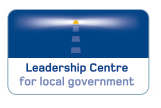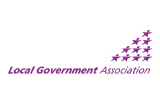Putting the Frontline First: Meeting the Local Government Challenge
Posted on March 1st, 2010
Putting the Frontline First: Meeting the Local Government Challenge
A report published today by the Putting the Frontline First Task Force sets out ten steps that councils should act on to protect frontline services. The Task Force, chaired by Sir Steve Bullock, the Mayor of Lewisham, and Sir Richard Leese, leader of Manchester City Council, looked at the best ways to share resources to invest in frontline services; to make frontline innovation a reality and how to restructure councils so they can deliver more efficiently.
John Denham said:
“Councils have some tough choices in the next few years as things become tighter. But that is no reason to lower their sights on service quality people rightly value. Government is working hard to make sure councils have explored every possible option before resorting to wholesale budget cuts that will affect frontline services and jobs.
“Today my taskforce, ably led by Steve Bullock and Richard Leese, has set out ten decisive steps councils can take to protect local services. They include sharing back office roles like HR and IT; using the same chief executive at two councils; and reducing the number of buildings used by bringing services together under the same roof.
“Local people will rightly be intolerant if they are told that front line services will be cut because viagra online without prescription their council hasn’t done everything suggested on this checklist. If councils adopt our radical efficiency reforms they can protect purchase viagra online our top priority frontline services which matter most to local people.”
What’s in the report?
The report sets out strategic questions that council leaders need to ask themselves about their council; and ten strategic questions to help council managers consider the actions, tools and resources needed to meet the challenges arising from these questions. It includes practical advice for councils telling them how to go about the process, where to find help and examples of savings that can be achieved by making changes. Regional efficiency experts will provide advice and support to councils.
Sir Steve Bullock said:
“Central Government departments will also have to change by giving vastly greater autonomy to their frontline if we are to seize this opportunity.”
Sir Richard Leese added:
“Councils have real choices in how, over the next period, they manage inevitable budget reductions. This report urges Council Leaders to avoid the superficially ‘easy’ options, ask some hard questions, look at what the best Councils are already doing, and make sure that budget management starts and finishes with the needs of the citizen.”
The ten things councils must do to protect frontline services:
- Council services must be focused on the customer. They come first
- Take a Total Place approach to frontline services
- Make services more efficient – cutting out waste and unnecessary duplication. Especially in two tier areas
- Check performance against others and learn from who is doing it better
- Buy goods and services in groups and use that buying power to create local benefits and involve the third sector
- Reduce the number of council buildings by locating more services together
- Motivate staff to help to perform to the best of their ability
- Make managers leaders of innovation to improve services
- Streamline management. Consider splitting senior posts with other councils or PCTs
- Share professional expertise and ensure council staff are able to be flexibly deployed
More information
You can download the full report from the Task Force![]() as well as the letter from Sir Richard Leese and Sir Steve Bullock
as well as the letter from Sir Richard Leese and Sir Steve Bullock![]() .
.
These PDF documents require Adobe® Acrobat®, a free programme that you can download from the Adobe® website. ![]()
Category: news




No Comments
No comments yet.